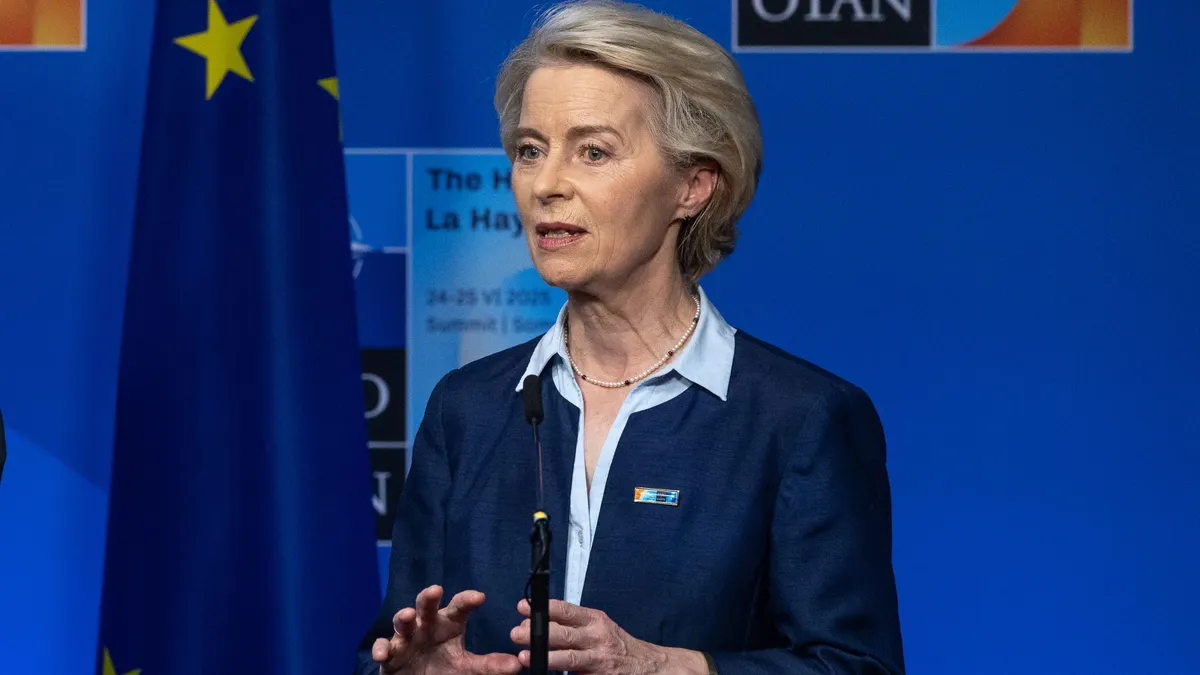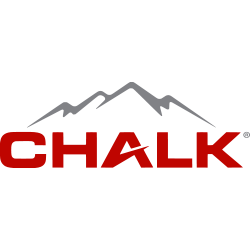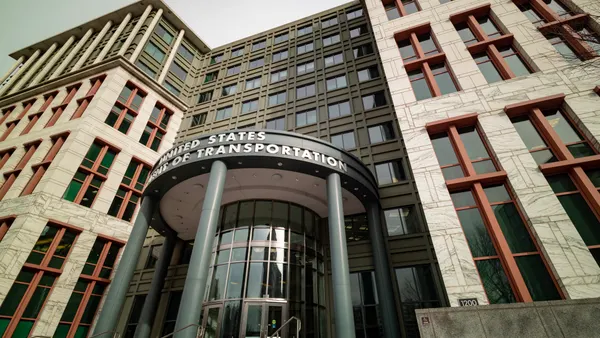Several U.S. trading partners outlined their plans to respond to new country-specific tariffs President Donald Trump unveiled in a series of letters last week.
The duties, which are slated to go into effect Aug. 1, include a 35% levy on Canada imports and a 30% rate for products from the European Union and Mexico. Trump also said he would place a 50% tariff on imports from Brazil while indicating plans to initiate a Section 301 investigation into the country.
The EU will delay its countermeasures that were meant to go into effect July 14 to “early August,” European Commission President Ursula von der Leyen said Sunday.
“We have always been very clear that we prefer a negotiated solution,” von der Leyen added. “This remains the case and we will use the time that we have now till the 1st of August.”
In response to a planned 20% tariff on EU imports Trump announced in early April, the bloc said it would install duties targeting 95 billion euros (more than $100 billion at the time it was announced) of U.S. imports. Both the U.S. and the EU delayed implementation of those duties for 90 days.
The bloc, however, is also preparing additional countermeasures that would cover 72 billion euros (roughly $84 billion) of U.S. imports, Commissioner for Trade and Economic Security Maroš Šefčovič said Sunday.
Šefčovič shared a proposal outlining the new tariffs to EU member states Sunday while noting that rebalancing measures on steel and aluminum will also be pushed to Aug. 1.
“We must prepare for all outcomes – including, if necessary, well-considered, proportionate measures to restore balance in our transatlantic relationship,” Šefčovič said.
Meanwhile, Canada is pushing back a July 21 negotiation deadline for potential adjustments of its duties on steel and aluminum imports, a Department of Finance official confirmed to Supply Chain Dive Tuesday. The new deadline is now Aug. 1, aligning with the date new U.S. tariffs are currently slated to go into effect.
After the U.S. hiked its own steel and aluminum duties to 50% in early June, Canada said it would increase its steel and aluminum tariffs “to levels consistent with progress that has been made in the broader trading arrangement with the United States,” per a June 19 press release.
As Canada and the European Union shift their retaliatory responses, Mexico President Claudia Sheinbaum expressed confidence her administration will reach a deal with the U.S. prior to Aug. 1.
"The letter clearly states that a deal is sought, so that these tariffs can be eliminated,” Sheinbaum said Saturday in Spanish. “So, they set it for August 1st. And we believe — based on what our colleagues discussed yesterday — that we will reach an agreement with the United States government and that we will, of course, reach better terms.”
Mexico has not formally announced any retaliatory actions to U.S. tariffs, although Sheinbaum previously indicated her administration had several plans to enact such countermeasures should negotiations fail.
Meanwhile, officials from Mexico met with U.S. counterparts on Friday to establish a permanent working group focused on security, migration, water management, the economy and other key issues, according to a press release Saturday.
Brazil is taking a more assertive approach to the latest U.S. tariff announcements. Luiz Inácio Lula da Silva, the country’s president, said Brazil will match the Trump administration’s planned 50% tariffs in an interview last week.
"Respect is good,” the president added in Portugese. “I like to offer mine and I like to receive it."














